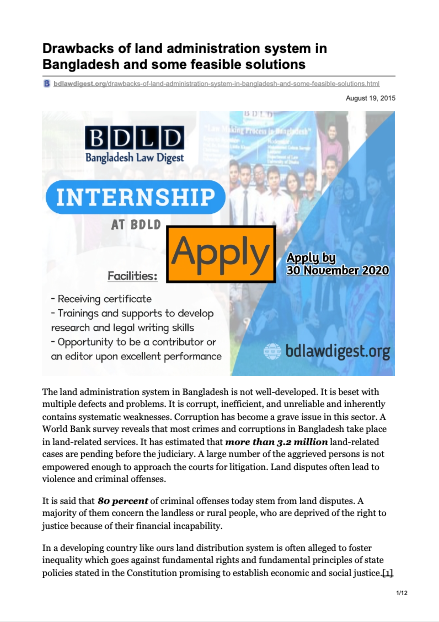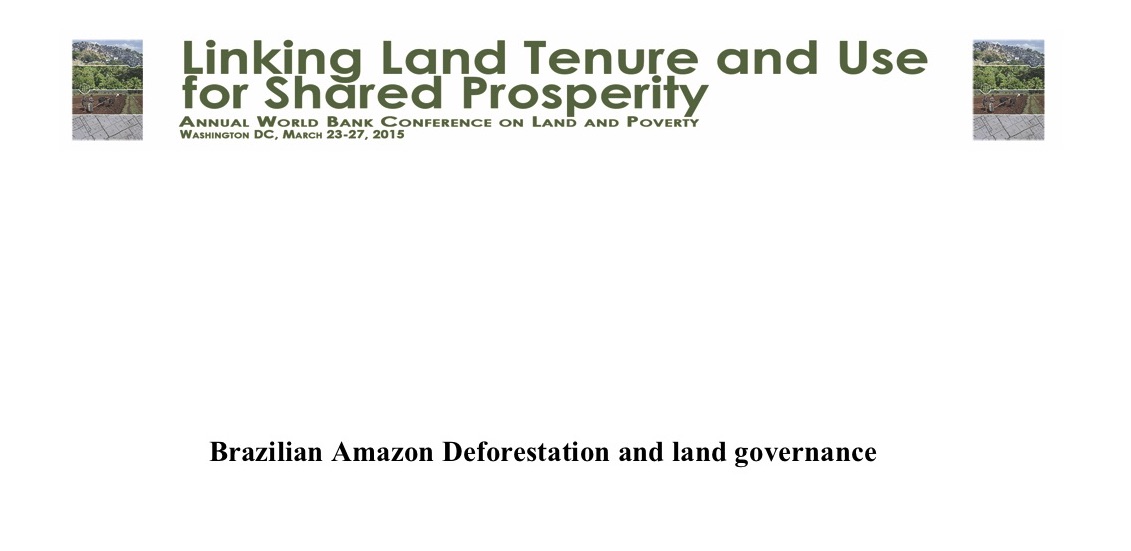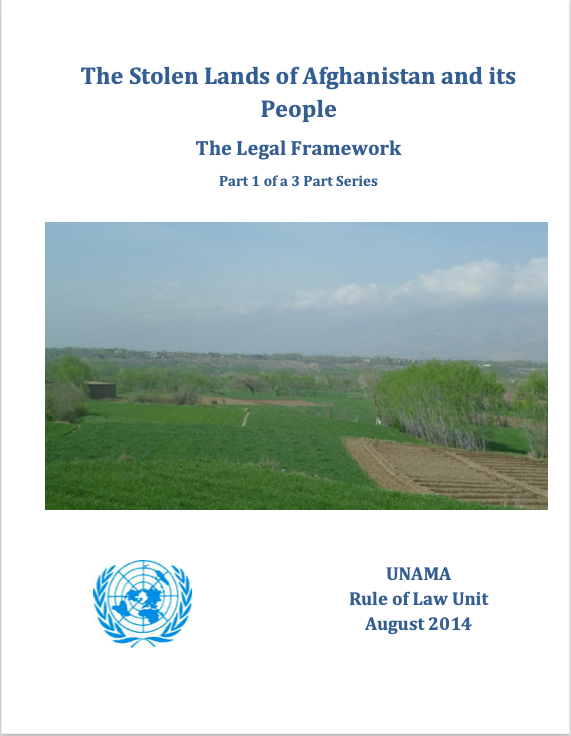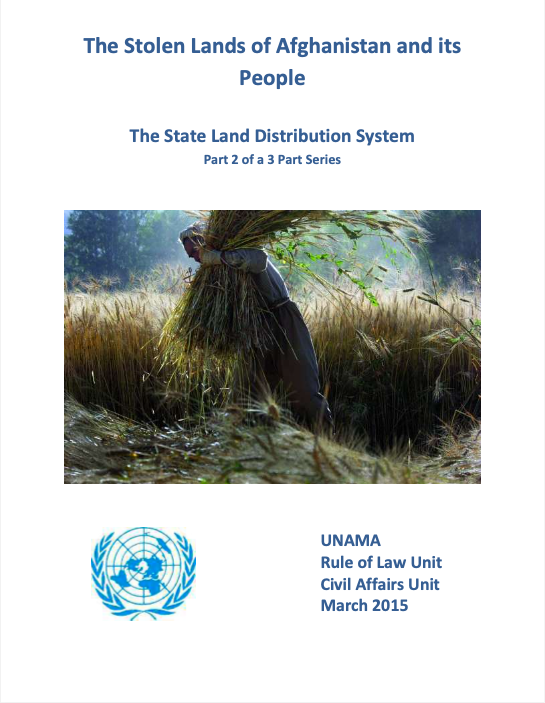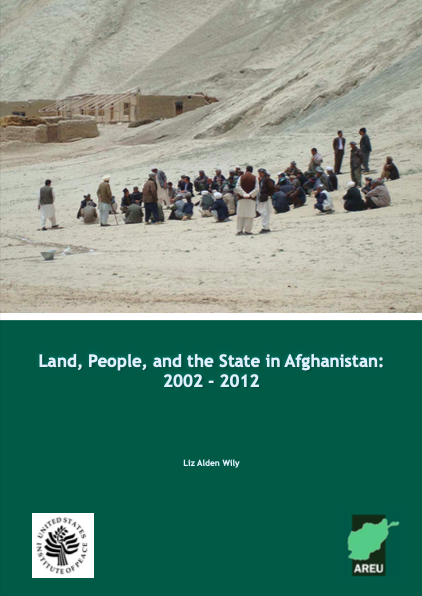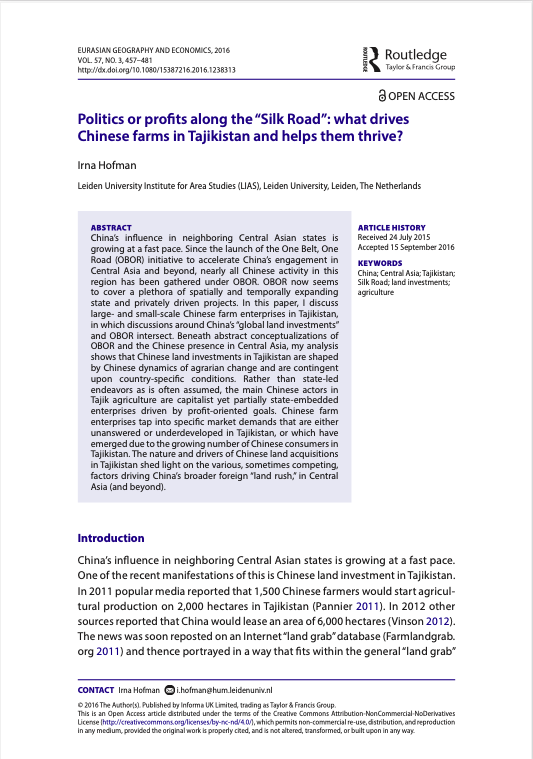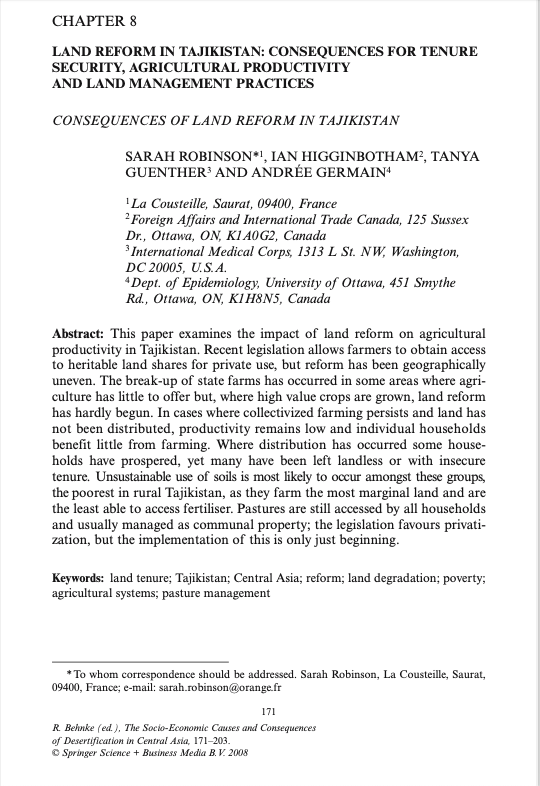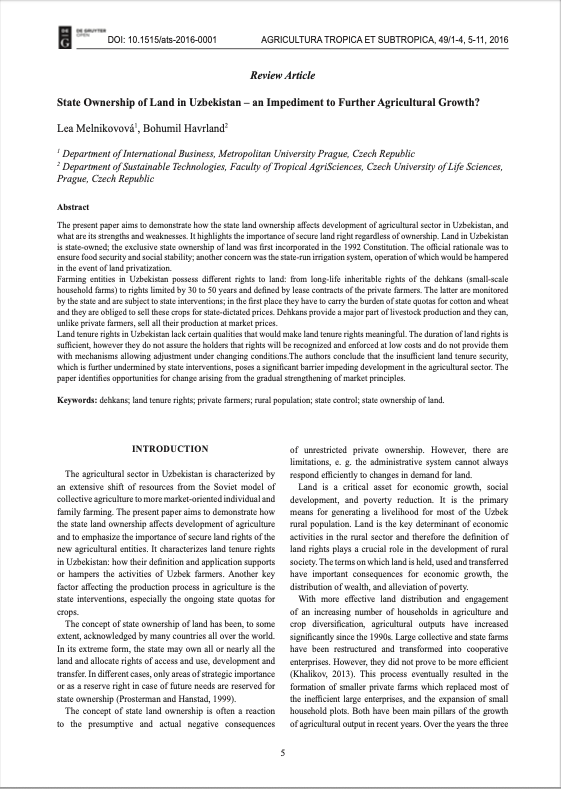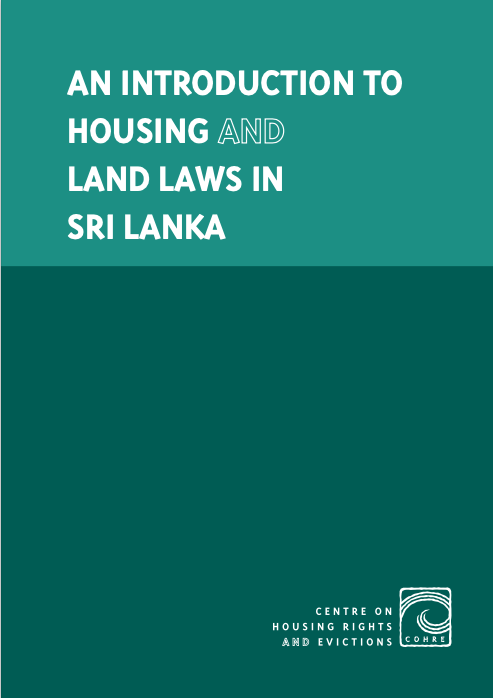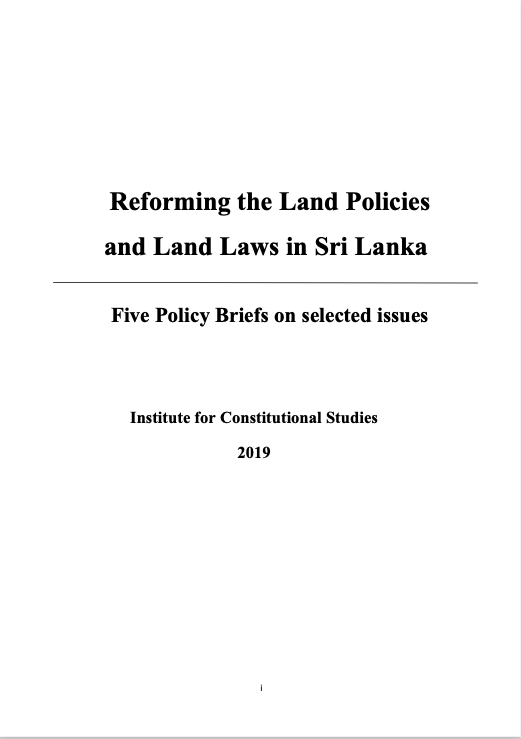Drawbacks of land administration system in Bangladesh and some feasible solutions
The land administration system in Bangladesh is not well-developed. It is beset with multiple defects and problems. It is corrupt, inefficient, and unreliable and inherently contains systematic weaknesses. Corruption has become a grave issue in this sector. A World Bank survey reveals that most crimes and corruptions in Bangladesh take place in land-related services. It has estimated that more than 3.2 million land-related cases are pending before the judiciary. A large number of the aggrieved persons is not empowered enough to approach the courts for litigation.

